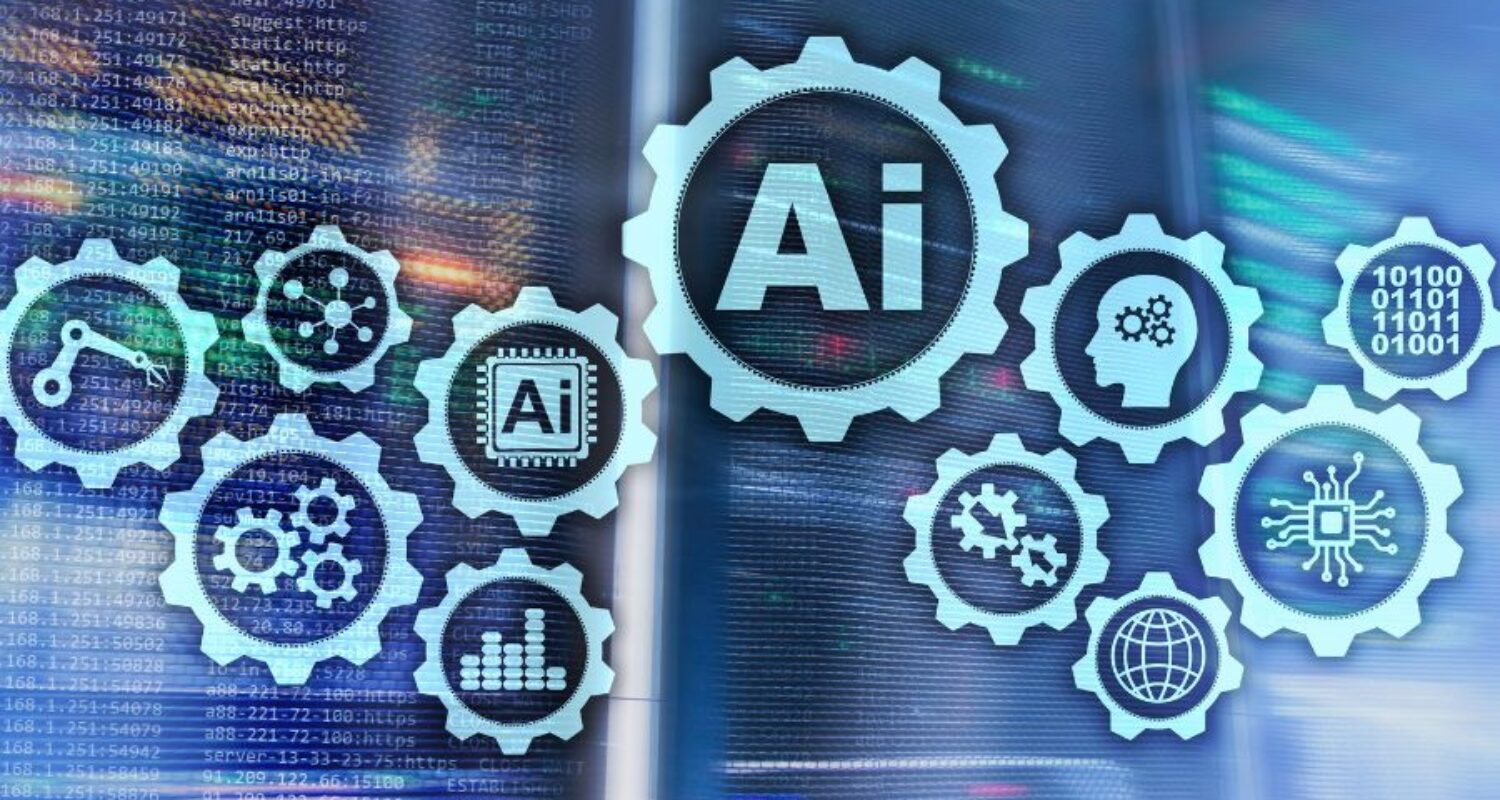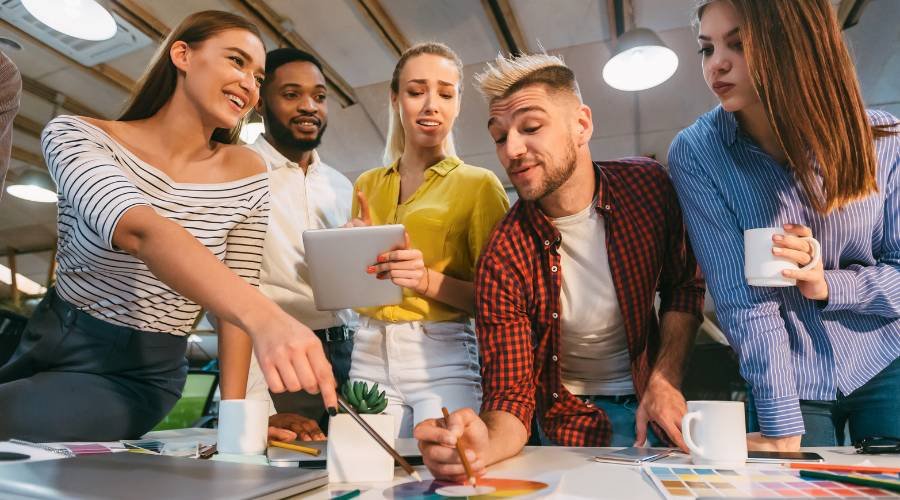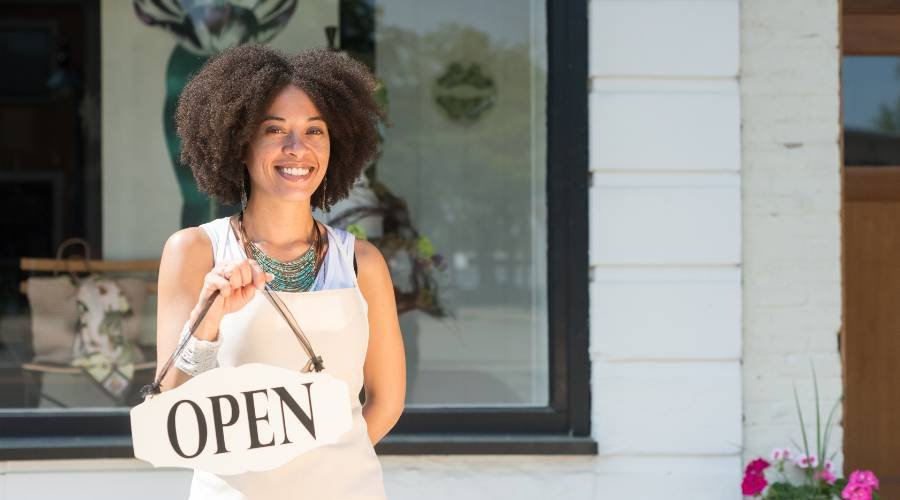Artificial intelligence (AI) is changing the beauty industry in big ways. It’s now key for marketing, product making, and talking to customers. With AI in the beauty market set to hit $1.26 billion by 2027, it’s time to ask: Are you ready to use AI to boost your beauty brand?
The COVID-19 pandemic hit the beauty world hard, causing a 20-30% drop in sales. But it also made people want more personal care. With a dermatologist visit costing $221, AI is seen as a smart choice for custom advice and treatments.
AI is shaking up old beauty marketing ways. It gives advice based on your skin type, needs, and health. For e-commerce sites that use personalization, sales can jump by up to 40%. This shows how powerful AI marketing can be in the beauty world.
Key Takeaways
- The global AI in beauty industry market is predicted to reach $1.26 billion by 2027, growing at a CAGR of 33.2%.
- The COVID-19 pandemic has led to a renewed focus on personalized solutions, with consumers demanding more tailored recommendations and treatments.
- AI-driven marketing in the beauty industry can drive up to a 40% increase in sales for e-commerce businesses that implement personalization strategies.
- AI-powered solutions can offer personalized recommendations based on individual skin types, needs, and conditions, disrupting the traditional approach to beauty marketing.
- The average dermatologist visit costs $221, making AI-based solutions an increasingly attractive option for those seeking tailored skincare recommendations.
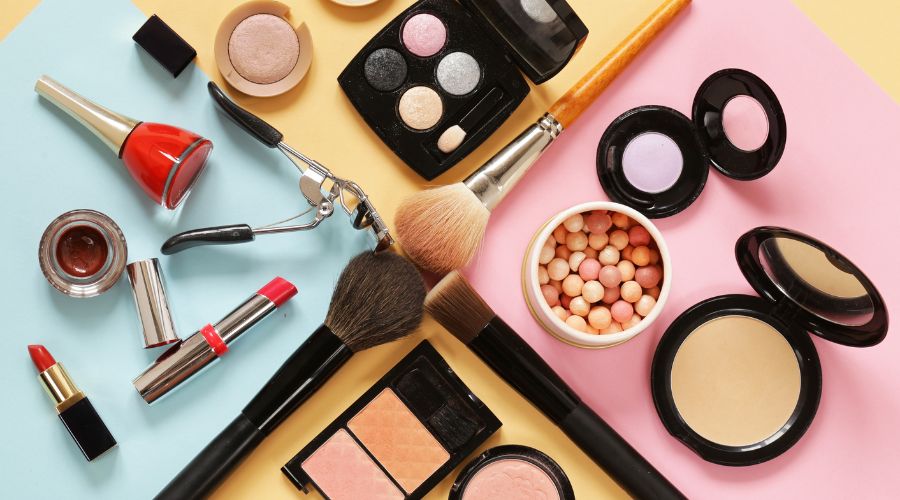
Understanding AI’s Impact on Beauty Industry Evolution
The beauty industry is changing fast, thanks to artificial intelligence (AI). People want beauty experiences that are personal and new. AI is making it possible for brands to connect with their customers better and offer products that fit each person’s needs.
Current Market Trends and Statistics
Studies show that 91% of people like brands that offer personalized services. E-commerce sites that use personalization see a 40% jump in sales. AI tools like Banuba’s TINT can increase sales by up to 300%.
Key Drivers of AI Adoption in Beauty
- AI gives personalized beauty product suggestions based on what you like and need.
- Apps like L’Oreal’s “Modiface” let you try on makeup virtually.
- Tools like Neutrogena’s “Skin360” app analyze your skin and suggest the best skincare routine.
The transformation from Traditional to AI-Powered Solutions
The beauty industry is moving from old ways to new, AI-driven methods. AI helps make customer experiences better, makes product development faster, and supports eco-friendly practices. As the skincare devices market grows, AI will play a big role in changing the industry.
“AI advancements are leading to more sophisticated apps for skincare analysis that can track changes in skin condition over time and adapt skincare routines through smartphone cameras.”
| Technology | Application | Impact |
|---|---|---|
| Computer vision for makeup trends | Analyzing customer data and purchase history to provide personalized product recommendations | Increased customer engagement and loyalty, with up to 40% higher sales for e-commerce businesses |
| Deep learning for beauty product recommendations | Developing AI-powered virtual try-on experiences and skincare analysis tools | Boosting conversion rates by up to 300% and enabling personalized skincare routines |
AI in Beauty Industry Marketing: Core Technologies and Applications
The beauty industry has seen big changes with AI. AI helps with personalized product picks, virtual try-ons, and smart customer service. The global AI in beauty market was worth $216.12 million in 2020. It’s expected to hit $1.26 billion by 2027, growing 33.2% each year.
At the core of this change are machine learning, computer vision, and natural language processing. These tools help beauty brands give customers a better experience. This leads to more sales and loyal customers.
Personalized Product Recommendations
AI engines look at what customers like and buy to suggest products. This makes shopping more fun and increases the chances of buying. It also means more sales and money for the brand.
Virtual Try-On Technologies
Augmented reality (AR) and computer vision let customers try beauty products online. This feature cuts down on returns and makes customers happier. They can buy with confidence.
Intelligent Customer Service
AI chatbots and virtual assistants are changing how beauty brands talk to customers. They offer advice, answer questions, and even book appointments. It’s all about making customer service better and faster.
As the beauty industry grows, using AI for sales forecasts and chatbots will be key. Beauty brands that use AI will offer amazing experiences. They’ll also grow and succeed in the future.
Personalized Beauty Solutions Through AI Analysis
AI is changing the beauty world. It brings new ways to analyze skin and try on makeup virtually. These tools help people make better choices for their beauty routines.
AI-Powered Skin Analysis and Diagnostics
Tools like TINT check over 200 skin factors. They use AI to understand skin hydration, color, and aging. This gives users personalized advice for their skin care.
Custom Product Recommendations
Proven Skincare uses AI to make skincare products just for you. It looks at lots of data to find the best ingredients for your skin. This way, you get a beauty plan that works for you.
Virtual Try-On Technologies
Augmented reality (AR) lets you see makeup and products on yourself before buying. Companies like L’Oréal and Sephora use this tech. It makes shopping more fun and helps sell more products.
AI is making beauty more personal. It helps with skin analysis, product picks, and virtual try-ons. These tools make choosing beauty products easier and more fun, improving the beauty experience for everyone.
Smart Beauty Devices and AI Integration
The beauty industry is changing fast, thanks to smart devices and AI. These tools are making skincare and beauty more personal. They use AI to give us customized advice and feedback right away.
The Luna Fofo by Foreo is a great example. It’s a smart facial brush that learns about your skin. It then suggests the best cleaning routine for you. The Tri-Light +SABI AI by Skin Inc. also uses AI. It looks at your water intake, sleep, and stress to suggest a skincare plan.
AI is also making smart mirrors popular in beauty. These mirrors check your skin and suggest routines. They help you take better care of your skin.
| Smart Beauty Device | Key AI Capabilities |
|---|---|
| Luna Fofo by Foreo | Machine learning for personalized skincare routines |
| Tri-Light +SABI AI by Skin Inc | AI-powered companion app for personalized skincare |
| AI-infused Smart Mirrors | Real-time skin analysis and personalized routine recommendations |
The beauty world is getting smarter, thanks to AI. These devices are changing how we care for our skin. They offer a new, AI-driven way to look after ourselves.
AI-Driven Product Development and Formulation
The beauty industry is changing fast with the help of artificial intelligence (AI). AI is making a big difference in how products are made and tested. It uses natural language processing for skincare and computer vision for makeup trends.
Ingredient Analysis and Selection
Big names like L’Oréal are using AI to pick the best ingredients. Their “Augmented Beauty” platform looks at lots of data on ingredients and how they affect skin. This makes choosing ingredients safer and more effective.
Product Testing and Optimization
AI and augmented reality (AR) are making product testing faster. They let people try products virtually and get instant feedback. This speeds up making new products and helps brands make better choices based on what people want.
Safety and Compliance Monitoring
AI is also helping keep beauty products safe and legal. The Good Face Project uses AI to help companies make products that follow the rules. This reduces risks and keeps customers safe.
The beauty industry will keep growing, and AI will play a big role. It will help brands offer personalized products and keep customers happy by using data to make better choices.
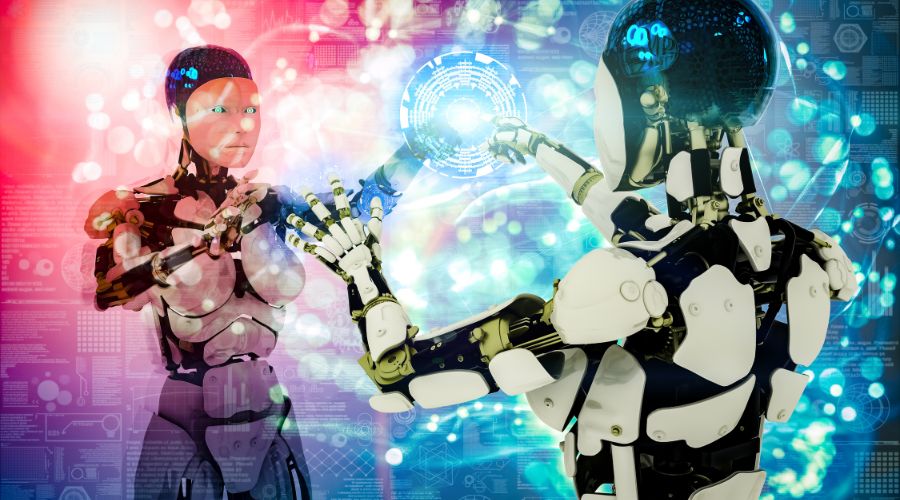
Virtual Beauty Consultations and Customer Service
AI is changing how we talk to customers and offer personalized services in the beauty world. It’s now possible to have virtual chats with dermatologists and get help from AI chatbots anytime. This new tech is making a big difference in the beauty industry.
AI is making it easier to get expert skincare advice. Sites like Piction Health use AI for virtual dermatology chats. Here, customers get advice from certified experts without having to go in person. This makes it easier for people to take care of their skin.
AI chatbots are also changing how we get help in the beauty world. They can answer lots of questions, like what products to buy or how to book an appointment. This lets human staff focus on harder tasks. And because they’re always on, customers can get help whenever they need it.
Using AI in beauty customer service is not just about being convenient. It’s also about being efficient and personal. Virtual assistants can manage bookings, answer questions, and even suggest deep learning for beauty product recommendations. This makes the experience more tailored to each person’s needs.
As the beauty industry keeps growing, using AI for chatbots for beauty consultations will become even more common. Beauty brands that use this technology will be able to improve customer experiences, work more efficiently, and stay competitive in a fast-changing market.
AI Marketing Analytics and Consumer Insights
The beauty industry is changing fast, thanks to AI. It’s changing how brands talk to their customers. We use predictive analytics and sentiment analysis to make smart choices and get the best results.
Predictive Analytics for Beauty Trends
We can predict beauty trends with AI. It looks at lots of data, like online reviews and sales. This helps us plan products and marketing better.
Customer Behavior Analysis
AI helps us understand our customers better. It shows us what they like and don’t like. We use this info to make experiences that fit each person’s needs.
ROI Measurement and Optimization
Measuring our campaigns’ success is key. AI tools help us see how well our marketing works. This lets us improve our strategies and get the most from our budget.
AI is changing the beauty industry and how we interact with customers. It helps us predict trends and give personalized advice. This makes marketing smarter and more effective.
| AI Application | Key Benefits | Industry Leaders |
|---|---|---|
| Predictive Analytics for Beauty Trends |
|
L’Oréal, Estée Lauder |
| Customer Behavior Analysis |
|
Sephora, MAC Cosmetics |
| ROI Measurement and Optimization |
|
Rezo.AI, BeautyHub PRO |
The beauty industry is entering a new era with predictive analytics for beauty sales forecasting and sentiment analysis for beauty product reviews. This means smarter marketing that improves the customer experience and helps businesses grow.
Sustainable Beauty Practices Through AI
The beauty industry is facing big environmental challenges. AI is stepping up to help with sustainable practices. It uses data mining and machine learning to change how products are made and sold.
AI helps make beauty products more sustainable. It can cut down on waste by making products that fit what customers want. This can lead to a big reduction in carbon emissions, up to 15% by 2030, a PwC report says.
- AI helps find the right products for each person, reducing waste.
- Virtual try-on tools cut down on returns, saving resources.
- AI makes product development and supply chains more eco-friendly.
AI is key to making the beauty industry more sustainable. It’s helping the industry grow while being kinder to the planet. By 2026, the beauty market is expected to hit $532 billion, thanks to AI.
Conclusion
AI is changing the beauty industry in big ways. It offers personalized skincare and virtual try-on tech. These changes make shopping better and work more efficient.
The beauty world is moving towards making products just for you. AI helps find the perfect match for your skin and style. This means you get products that fit your needs.
AI’s role in beauty will only grow. It will change how products are made, marketed, and sold. For example, AI helps brands understand what customers want. This way, they can make products that people love.
We’re entering a new era in beauty, powered by AI. But we must think about privacy and fairness. We need to use AI in a way that respects everyone’s needs.
By doing this, we can make the beauty industry better for everyone. AI can help us offer unique experiences that meet our diverse needs in Australia.
FAQ
How has AI in beauty industry marketing been impacted by COVID-19?
COVID-19 has changed the beauty industry a lot. It lost 20-30% in revenue but skincare sales grew by 19%. Now, people want skincare that fits their needs exactly.
How are AI technologies disrupting the beauty industry?
AI is changing how beauty products are chosen. It gives advice based on your skin type and needs. This makes 91% of people more interested in brands that get to know them.
Online stores that use AI for personalization see a 40% jump in sales.
What are the key AI technologies being used in the beauty industry?
Beauty marketing uses AI in many ways. Machine learning, computer vision, and natural language processing are key. They help with personalized product picks, virtual try-ons, and chatbots for help.
How is AI transforming personalized beauty solutions?
AI tools can check over 200 skin parameters. Virtual try-ons show how products will look on you. Companies use AI to make skincare products just for you.
What are the benefits of AI-infused smart beauty devices?
Smart beauty devices like Luna Fofo by Foreo offer personalized skincare. The Tri-Light +SABI AI by Skin Inc. uses an app that considers your lifestyle. AI-infused devices give feedback on your skin and routines.
How is AI contributing to sustainable practices in the beauty industry?
AI helps make beauty products more sustainable. It improves formulas and cuts down on waste. AI can also make supply chains more efficient, reducing carbon emissions by up to 15% by 2030.
What are the future trends for AI in the beauty industry?
The future of beauty is all about being super personal. AI will make product recommendations even more precise. As AI gets better, it will change how we make and market beauty products, and how we interact with customers.

